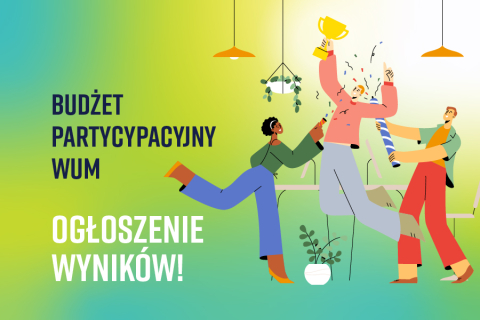Even small projects can significantly increase the efficiency of study or work and improve the comfort of time spent at the university and in the dormitory. Hence the idea to implement MUW participatory budgeting, which was initiated last year by Rector Professor Zbigniew Gaciong.
In the fall, every student, doctoral student and employee could submit ideas on what could be improved at the university: whether for small renovations or retrofitting, or for culture, art, sports or teaching.
Projects with the highest number of votes
The submitted projects were reviewed on their merits, and then went to a vote. There were 21 projects on the list, and each community member could vote for three ideas.
It was decided by a majority of votes (the participatory budgeting committee verified the results, while the rector signed them) that the following initiatives would receive funds for implementation:
- Purchase of furniture items for arranging the studying and relaxation space at the Library and Information Center Reading Room (648 votes cast);
- Supply of functional furniture and multimedia equipment for the Faculty of Pharmacy building hall, arrangement of a relaxation space (462 votes cast);
- Work- life balance – active leisure, recreation and creative studying area at Dorm no. 1 of WUM Medical University of Warsaw (435 votes cast);
- Work&chillout area at Litewska (298 votes cast);
- Student Escape: Oasis of Calm and Inspiration (282 votes cast).
Overall voting results of the first edition of the MUW participatory budgeting
A total of 200 thousand zlotys will be allocated for the winning projects, and the work is scheduled to be finalized at the beginning of the new academic year.
- The university is a community of students, doctoral students, teaching staff and other employees, so it is important for everyone to have a sense of influence on what is changing within the walls of our Alma Mater - stresses Rector Professor Zbigniew Gaciong. And he adds that participation in the participatory budgeting is not only an expression of commitment to the common good, but also the integration of the entire community. - I am pleased by the interest in the first edition of the project. I hope that with each subsequent edition the creativity and involvement of everyone will grow - says the rector.
